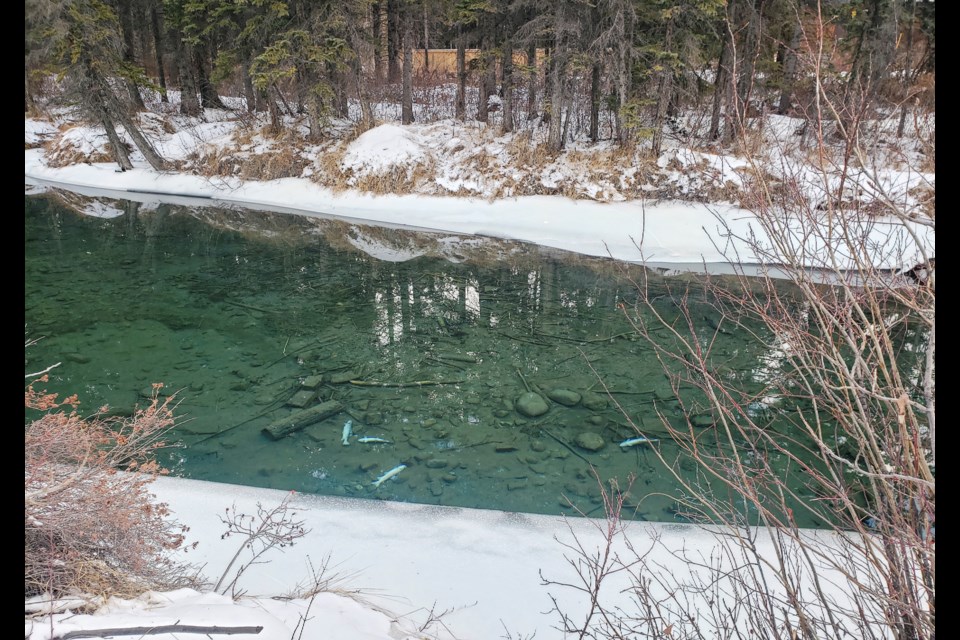CANMORE – Provincial biologists have determined fish in Spring/Policeman’s creeks died after extremely cold temperatures froze over sections, leaving the fish trapped and isolated.
Officials with Alberta Environment and Protected Areas say during the inspection, biologists found 20 adult-sized dead fish – 18 brown trout, one brook trout, and one bull trout, which is an endangered species.
Tom McMillan, director of communications for Alberta Environment and Protected Areas, said many sections of Policeman’s Creek were completely frozen during the Jan. 10-17 cold snap – and only thawed in the last couple of days.
In addition, he said Policeman’s Creek went dry in some locations, both above and below the Main Street bridge crossing.
“Given the shallow, slow-moving water, the preceding cold snap and the stream conditions, the fish were most likely killed as a result of being trapped and isolated in pools during the rapid onset of extreme cold conditions,” said McMillan.
“During the inspection, we did not detect any chemical or biological discharge or other identifiable feature that could have resulted in a fish kill.”
Alberta Environment and Protected Areas sent a team to conduct an inspection on Jan. 23 following reports the day before of dead fish.
In January 2023, thousands of dead and dying fish were found in Vermilion Lakes near Banff.
After investigating, Parks Canada discovered that dissolved oxygen levels of the lake were very low, resulting in a naturally occurring phenomenon referred to as winter-kill.
Winter-kill, which most commonly affects shallow, nutrient-rich lakes and wetlands, occurs when ice and snow levels above the water’s surface become so thick that light cannot penetrate the water column.
As a result, aquatic plants and algae cannot produce oxygen through photosynthesis, resulting in a decrease in the amount of oxygen available to the aquatic life below the ice, which can cause mass fish die-offs.
White suckers and brook stickleback – which are native to Vermilion Lakes – were the species impacted by the winter-kill.




